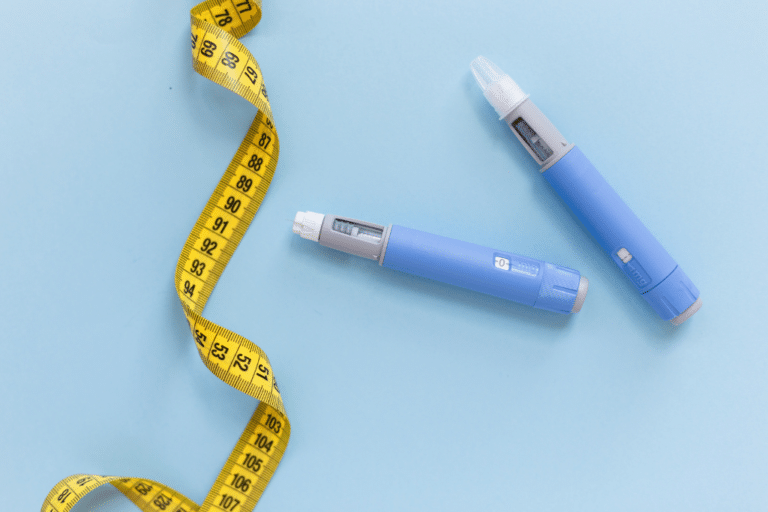Estrogen, one of the key players during perimenopause, protects the heart by preventing inflammation that leads to the build-up of plaque in coronary arteries. As you age, your estrogen levels start declining to prepare the body for menopause, increasing your risk of heart disease.
Many women incorrectly think of heart disease as a “man’s disease.” Historically, it was — until science told us differently. Now, almost as many women die yearly from heart disease in the United States. Seven times as many women die of heart disease than breast cancer every year!
Estrogen and Heart Health
Estrogen is helpful for heart health. For years, hormone replacement therapy got a bad rap due to a study called the Women’s Health Initiative. The study’s results were presented in 2002 — about 20 years ago. The healthcare world deemed estrogen dangerous, and physicians have hesitated to prescribe it to their patients.
What does this mean for women? How can you be your own best advocate and navigate the healthcare system to protect your heart health?
You can start by educating yourself. Arming yourself with knowledge is the first step because 80% of heart disease is preventable.
What About Estrogen and Inflammation?
Why does inflammation matter in this scenario? Inflammation has not been proven to cause heart disease but is associated with heart disease and stroke. Risk factors such as being overweight, having diabetes, and elevated levels of cholesterol all cause inflammation or “injury” to the heart. Estrogen helps control inflammation, but this protective effect disappears in menopause.
5 Ways to Decrease Levels of Inflammation to Prevent Heart Disease
1) Ask your healthcare provider to test you.
A multitude of tests gives information about your heart health. Some tests you may want to suggest/discuss are:
- A lipid panel will check the cholesterol levels in your blood. Common things this scans for are your good cholesterol (HDL), your bad cholesterol (LDL), and your triglycerides. Ask for advanced lipid testing or a coronary calcium score if your levels are high.
- CRP (C-reactive protein) is a protein produced by your liver in response to inflammation. Elevated levels are a sign of potential trouble.
- High levels of homocysteine can damage the inside of your arteries and cause blood clots, potentially leading to a heart attack or stroke. You can lower your homocysteine levels with folate, one of your B vitamins.
2) Change your lifestyle.
Try to maintain a healthy weight and choose foods low in saturated fat and high in fiber. A good example to base your choices on is the Mediterranean diet.
3) Watch your blood sugar.
Diabetes causes inflammation and is an independent risk factor for heart disease. You can order a test to check your fasting insulin levels. Also, exercise regularly to maintain healthy levels of glucose.
4) Manage your stress levels.
In Conclusion
Although there are currently no recommendations to use estrogen to prevent heart disease, it is something to consider if you are experiencing other menopausal symptoms. You’ll get the added benefit of helping heart health.
Taking care of your health is often low on the priority list for women. Midlife is an excellent time to revisit this. The best time to start planning for a healthy heart is NOW.
Dr. Anna Garrett is a menopause expert and Doctor of Pharmacy. She helps women who are struggling with symptoms of perimenopause and menopause find natural hormone-balancing solutions so they can rock their mojo through midlife and beyond. Dr. Anna is the author of Perimenopause: The Savvy Sister’s Guide to Hormone Harmony. Order your copy at www.perimenopausebook.com.
Also, she offers a membership group, Hormone Harmony with Dr. Anna Garrett, which provides women in midlife with affordable expert guidance and community support.
Dr. Anna is available for 1-1 consultation. Find out more at www.drannagarrett.com/lets-




